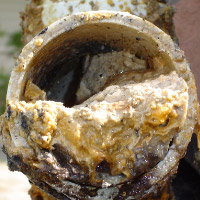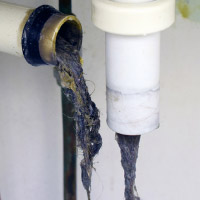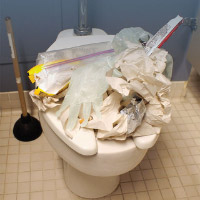
The Town of Lunenburg’s Public Works Department is committed to effectively treating storm and sanitary wastewater.
- Infographic: pdf Timeline of Wastewater Treatment in the Town of Lunenburg(1.06 MB)
- Brochure: pdf Lunenburg Wastewater Treatment Plant Brochure(499 KB)
Wastewater Upgrades Project
The Town of Lunenburg is proceeding with a phased plan for comprehensive upgrades to its Wastewater Treatment Plant (WWTP) and collection system. Town Council approved an Implementation Plan on September 28, 2021. Funding from all levels of government will be pursued.
- pdf Summary Presentation: WWTP Upgrades and Outfall Extension(4.89 MB)
- pdf Implementation Plan Memo(269 KB)
- pdf Outfall Extension Pre-Design Final Report(10.92 MB)
- pdf WWTP Near-Term Upgrades Pre-Design Final Report(10.92 MB)
- pdf WWTP Long-Term Expansion Conceptual Design Final Report(9.70 MB)
- pdf WWTP Building Condition Assessment Final Report(13.32 MB)
Lunenburg Harbour Water Quality
The Wastewater Treatment Plant's federal and provincial operating licenses require an extensive range of testing for treated wastewater before it is released to the harbour.
Lunenburg Harbour is a working harbour and does not have any designated recreational swimming areas.
Please enjoy recreational boating in our harbour - be safe and have fun!
NOT Wanted in our Wastewater System
REWARDS: Fewer repairs = Cost savings; Cleaner wastewater system = Cleaner ocean

What you flush, pour down the sink/drain, or dump into a storm sewer doesn’t just disappear. It goes into our wastewater system and into the ocean.
A wastewater system is designed to treat human waste and grey water only. Problem material in the wastewater system can cause “fatbergs” and clogs, damage household pipes, damage public sewer pipes and equipment, harm marine life and even public health.
The wastewater system is owned by the residents of Lunenburg. The cost to repair damage from inappropriate material comes back to you, the taxpayer.
For businesses:
See the Town of Lunenburg’s Bylaw #34 Sewer Discharge for what businesses operating in the Town can and can’t dispose of in the wastewater system.
For residents and visitors:
Downloadable pdf poster(901 KB) or pdf set of 7(3.40 MB) of below information - what to avoid, and where it should go.
Fats, Oil, Grease
 Cooking oils • meat fats • dairy products • sauces & dressings • butter & lard
Cooking oils • meat fats • dairy products • sauces & dressings • butter & lard
When warm fats are poured down your sink they cool, harden, and can stick to the inside of your sewer pipe. Over time, this buildup causes “fatbergs” that block sewers and catch basins – and costs your tax dollars to repair. You can help!
Never pour grease down the drain. Scrape dishes and cookware - dispose of in your green bin/compostainer.
VIDEO: Halifax Water “How to Bacon Responsibly"
"Flushable" Wipes
 Personal wipes, baby wipes, cosmetic wipes, cleaning wipes …and even paper towel or luxury tissue!
Personal wipes, baby wipes, cosmetic wipes, cleaning wipes …and even paper towel or luxury tissue!
They may GO down your toilet, but they don’t BREAK down in the sewer. Damage and clogs will result in costly repairs. You can help!
Dispose of wipes in solid waste, or consider not purchasing.
VIDEO: Halifax Water “Toilet Paper - The One & Only Flushable Wipe”
Human & Animal Hair
 Long hair, short hair, pet hair/fur or feathers
Long hair, short hair, pet hair/fur or feathers
Hair sticks to oily materials in drains and then becomes hydro-dynamic so that water doesn’t flush it away. Hair shedding significantly contributes to costly clogged drains and pipes, as well as getting tangled in machinery. You can help!
Use a hair trap or strainer to catch hair before it goes down your pipes. Human and pet hair can go in the green bin.
Food Scraps
 Coffee grounds, eggshells, bones, fruit pits & seeds, vegetable peels, pasta & rice
Coffee grounds, eggshells, bones, fruit pits & seeds, vegetable peels, pasta & rice
Hard food scraps can cause expensive damage to pipes, blades, and equipment. Soft scraps swell in water to cause clogs. You can help!
Never dump food down the drain – garborators are not a solution. Dispose of food prep scraps and leftovers in your green bin/compostainer.
Hazardous Chemicals
 Paint & varnish, fuel/oil, solvents, adhesives, pesticides/herbicides, bleach & cleaners
Paint & varnish, fuel/oil, solvents, adhesives, pesticides/herbicides, bleach & cleaners
A household drain can seem like a convenient place to get rid of waste, but these kinds of chemicals can cause costly damage to equipment and prove a danger to public health and marine life. You can help!
Never pour household hazardous waste down the drain. Town residents can bring many of these products to the residential Household Hazardous Waste site at Kaizer Meadow Landfill & Environmental Management Centre – please CALL FIRST (902-275-2330) to check what they can/cannot accept or email This email address is being protected from spambots. You need JavaScript enabled to view it. – you can also download the "R6RECYCLES" app to search by item. Consider switching to eco-friendly cleaning and personal care products.
Discarded Medication
 Prescription drugs, over-the-counter drugs, sharps/needles
Prescription drugs, over-the-counter drugs, sharps/needles
The toilet (or garbage) can seem like a convenient place to get rid of waste, but some can be a danger to public health and marine life. You can help!
Never flush or throw out medication. Return “dead drugs” to your local pharmacy. Nova Scotia has a province-wide program for the disposal of household pharmaceutical waste.
Toilet ≠ Trashcan
 Dental floss, cigarette butts, cotton swabs/balls, diapers, feminine hygiene products, condoms, bandaids, clothing, plastic/paper wrappers & stickers
Dental floss, cigarette butts, cotton swabs/balls, diapers, feminine hygiene products, condoms, bandaids, clothing, plastic/paper wrappers & stickers
It’s a toilet – or a storm drain – NOT a trashcan. Garbage dumped down the toilet or sink can cause costly backups and get tangled in machinery. Garbage dumped in a storm sewer can go straight into the ocean. You can help!
Never dispose of garbage down the toilet or a storm drain. Put garbage where it belongs – in your solid waste collection. Thank you.

